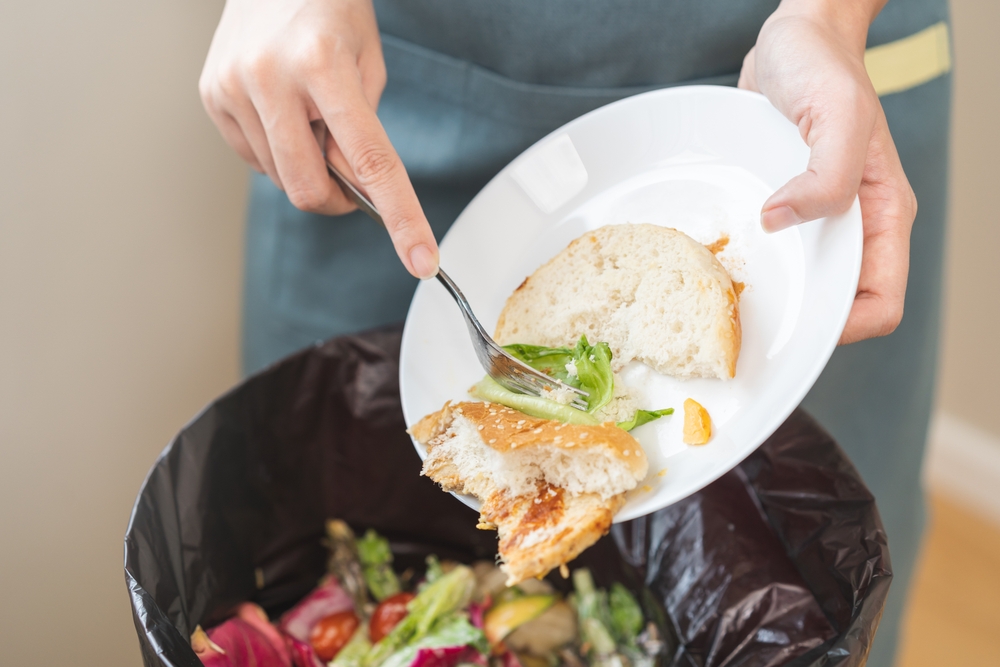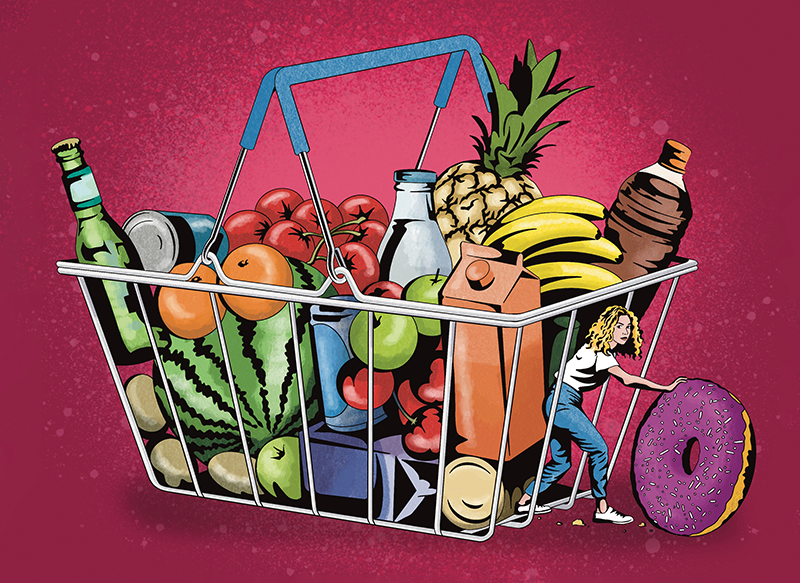There are many fallacies about food waste, shows research by Erica van Herpen, an associate professor in the Marketing and Consumer Behaviour group. With reference to five papers published this year, Van Herpen debunks five common misconceptions about food waste by consumers.
Two billion kilos of food go to waste in the Netherlands annually. ‘If you put all our discarded food into trucks, you’ll have a queue from Utrecht to Barcelona,’ says Van Herpen. ‘Food waste throughout the supply chain is responsible for about nine per cent of our greenhouse gas emissions.’
Van Herpen’s research focuses on food waste that the consumer has a hand in. ‘For instance, leftover food that you don’t keep, as well as ingredients that you forget you’ve got, which never even reach your plate, or food that you leave on your plate in a restaurant.’
Using five papers published this year (see the box below), Van Herpen debunks five common misconceptions about food waste by consumers.
1. Good planning is the key to reducing food waste.
Not true because: strict planning is at odds with the hectic pace of daily life.
‘Families with children, in particular, find that their kids’ friends stay for dinner, or their kids make last-minute plans to eat at a friend’s house. Or you go for dinner with friends spontaneously, or you just grab something to eat at the office. Then you’ve suddenly got food left over, in spite of your planning. Planning meals is a good thing in itself, but the most efficient way is to factor in a leftovers day.
‘In Canada and the United States, we did research using flexible recipes. They didn’t have fixed ingredients, but ingredient categories instead. That way we encouraged consumers to use “vegetables” or “meat or a meat substitute”, without specifying exactly which one. A leftovers day with flexible recipes reduced food waste by 31 per cent in Canada and by 47 per cent in the United States.’
2. Bulk discounts, like two for the price of one, encourage waste.
Not true because: bulk discounts create concern about waste, leading to less of it.
‘Impulse buys are certainly linked to food waste, but bulk discounts – like the Albert Heijn’s special offer weeks – create awareness and concern about waste. Research actually shows that consumers freeze food or eat it sooner if they consciously buy more of it than usual. That triggers the concern. This doesn’t apply to normal reductions, though. Nor does it apply if you’re used to always buying in bulk.’
3. You need discounts to get consumers to buy products that are close to their use-by date.
Not true because: consumers are willing to buy these products based on their moral compass.
‘Even if there’s no discount on products that are close to their use-by date, consumers are willing to buy them as long as we explain that they will otherwise go to waste. That message appeals to consumers and gives them a good feeling about such a purchase. What is more, we saw that consumers are more careful about using these products than they are with products that will last longer. Products that are close to their use-by date get frozen or consumed sooner. People don’t buy these things only to throw them out at home.’
4. Families with lots of leftovers will waste a lot.
Not true because: by no means everyone hates leftovers.
‘There are people who hate leftovers and people who love them. Those who love them have more of them and really do eat them up. Others can’t stand eating leftovers. They may subscribe to the misconception that they are not as healthy, or they just don’t like them, or they want variety in their meals. But this doesn’t mean that people who dislike leftovers automatically waste more food, because they are often better at preventing leftovers.’
5. Concerns about wasting money prompt consumers to waste less food.
Not true because: moral considerations regarding food waste outweigh other motives.
‘We know of four main motives consumers have for trying to waste less food: environmental considerations, financial considerations such as “waste costs money”, moral considerations such as “waste is wrong”, and social considerations such as “what would other people think of me?” Not all these motives influence our behaviour around food waste. But the moral and environmental considerations do, and the moral considerations outweigh the others. They make consumers feel “this shouldn’t be allowed to happen, there are people going hungry in the world and I’m throwing out this food”. People who think that food waste is not on, based on this consideration or environmental considerations, are more likely to try and minimize their contribution to food waste.’
Papers for reference
1. A. Cooper, R. Lion, O.E. Rodriguez-Sierra, et al. Use-up day and flexible recipes: Reducing household food waste by helping families prepare food they already have. Resources, Conservation and Recycling. 2023.
2. A. Van Lin, A. Aydinli, M. Bertini, et al. Does Cash Really Mean Trash? An Empirical Investigation into the Effect of Retailer Price Promotions on Household Food Waste. Journal of Consumer Research. 2023.
3. Y. Zhang, E. van Herpen, E. Van Loo, et al. Save near-expired food: Does a message to avoid food waste affect food purchase and household waste prevention behaviors? Journal of Cleaner Production. 2023.
4. M. Nikravech, N. Langen, E. van Herpen, et al. Leftovers lovers vs. haters: A latent class analysis on dinner leftover management behaviours. Appetite. 2023.
5. D. Ribbers, M. Geuens, M. Pandelaere, et al. Development and validation of the motivation to avoid food waste scale. Global Environmental Change. 2023.

 Bulk discounts – like the Albert Heijn special offer weeks – create awareness and concern about waste. Consumers are more likely to freeze food or eat it sooner if they deliberately buy more than usual. Photo Shutterstock
Bulk discounts – like the Albert Heijn special offer weeks – create awareness and concern about waste. Consumers are more likely to freeze food or eat it sooner if they deliberately buy more than usual. Photo Shutterstock 

